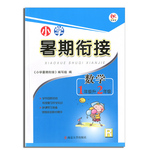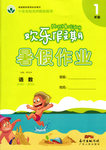题目内容
As a boy,Tim was much influenced by books about the sea, but in fact by the age of fifteen he had decided to become a doctor rather than a sailor. His father was a dentist and as a result Tim had the opportunity of meeting many doctors either at home or elsewhere. When he was fourteen he was already hanging around the clinic of a local doctor where he was supposed to be helping to wrap up medicine bottles,but was actually trying to listen to the conversations taking place between the doctor and his patients in the next room.
During the war Tim served in the Navy as a surgeon(外科医生).“That was the happiest time of my life. I was dealing with very real suffering and on the whole making a success of it .”In California he taught the country people simple facts about medicine. He saw himself as a life-saver. He had proved his skills to himself and his ability to take decisions. Thus,while he was able to tell them what to do, he could feel he was serving them. After the war, he got married and chose to be a doctor in the countryside,working under an old doctor who was popular in the area,but who hated the sight of blood and believed that the secret of medicine was faith. This gave the younger man many opportunities to go on working as a life –saver.
1.Tim decided to become a doctor at fifteen mainly because
|
A.hisfather wanted him to be so |
|
B.his father was a surgeon himself |
|
C.e had read many books about medicine |
|
D.e had chances to meet many doctors through his father |
2.Which of the following is true according to the passage?
|
A.Tim got married to the old doctor’s daughter. |
|
B.Tim continued working as a surgeon after the war. |
|
C.Before the war,Tim worked as a doctor at a local clinic. |
|
D.While working in California,Tim taught life-saving to the patients. |
3.From the passage we can infer that Tim .
|
A.was sent to Europe during the war |
B.worked as a surgeon during the war |
|
C.was satisfied with his career as a surgeon. |
D.decided to give up medicine for faith |
4.The passage is mainly about .
|
A.Tim’s life story |
B.Tim’s dream |
C.Tim’s marriage |
D.Tim’ s patients |
1.D
2.B
3.C
4.A
【解析】略

 学而优暑期衔接南京大学出版社系列答案
学而优暑期衔接南京大学出版社系列答案 Happy holiday欢乐假期暑假作业广东人民出版社系列答案
Happy holiday欢乐假期暑假作业广东人民出版社系列答案Mark Twain left school when he was twelve. He had little school education. In spite of this, he became the most famous writer of his time. He made millions of dollars by writing. His real name was Samuel Langhorne Clemens, but he is better known all over the world as Mark Twain, his penname.
Mark Twain was born in 1835 and he was not a healthy baby. In fact, he was not expected to live through the first winter. But with his mother’s care, he managed to survive. As a boy, he caused much trouble for his parents. He used to play jokes on all his friends and neighbors. He didn’t like to go to school, and he often ran away from home. He always went in the direction of the nearby Mississippi(密西西比河). He was nearly drowned nine times.
After his father’s death, Mark Twain began to work for a printer, who only provided him with food and clothing. Then, he worked as a printer, a river-boat pilot and later joined the army. But shortly after that he became a miner. During this period, he started to write short stories. Afterwards he became a full time writer.
In 1870, Mark Twain got married. In the years that followed he wrote many books including Tom Sawyer in 1876, and Huckleberry Finn in 1884, which made him famous, and brought him great fortune.
Unfortunately, Mark Twain got into debts in bad investments(投资) and he had to write large numbers of stories to pay these debts. In 1904, his wife died, and then three of his children passed away.
At the age of 70, his hair was completely white. He bought many white suits and neckties. He wore nothing but white from head to foot until his death on April 21, 1910.
【小题1】In his childhood, Mark Twain, ________.
| A.learned a lot at school |
| B.he often went swimming with other boys |
| C.his mother often worried about his safety |
| D.he often played games with other boys |
a. He became a miner. b. He worked as a printer.
c. He got into debts. d. His father died.
e. He became a full-time writer. f. He joined the army.
| A.a—d—b—c—e—f | B.d—b—f—a—e—c |
| C.d—a—f—e—b—c | D.c—b—d—f—e—a |
| A.first worked as a printer |
| B.did many kinds of work |
| C.wrote stories in the beginning |
| D.joined the army after he worked in a mine |
| A.became a white man | B.was in low spirits |
| C.liked to buy all kinds of clothes | D.had nothing on |